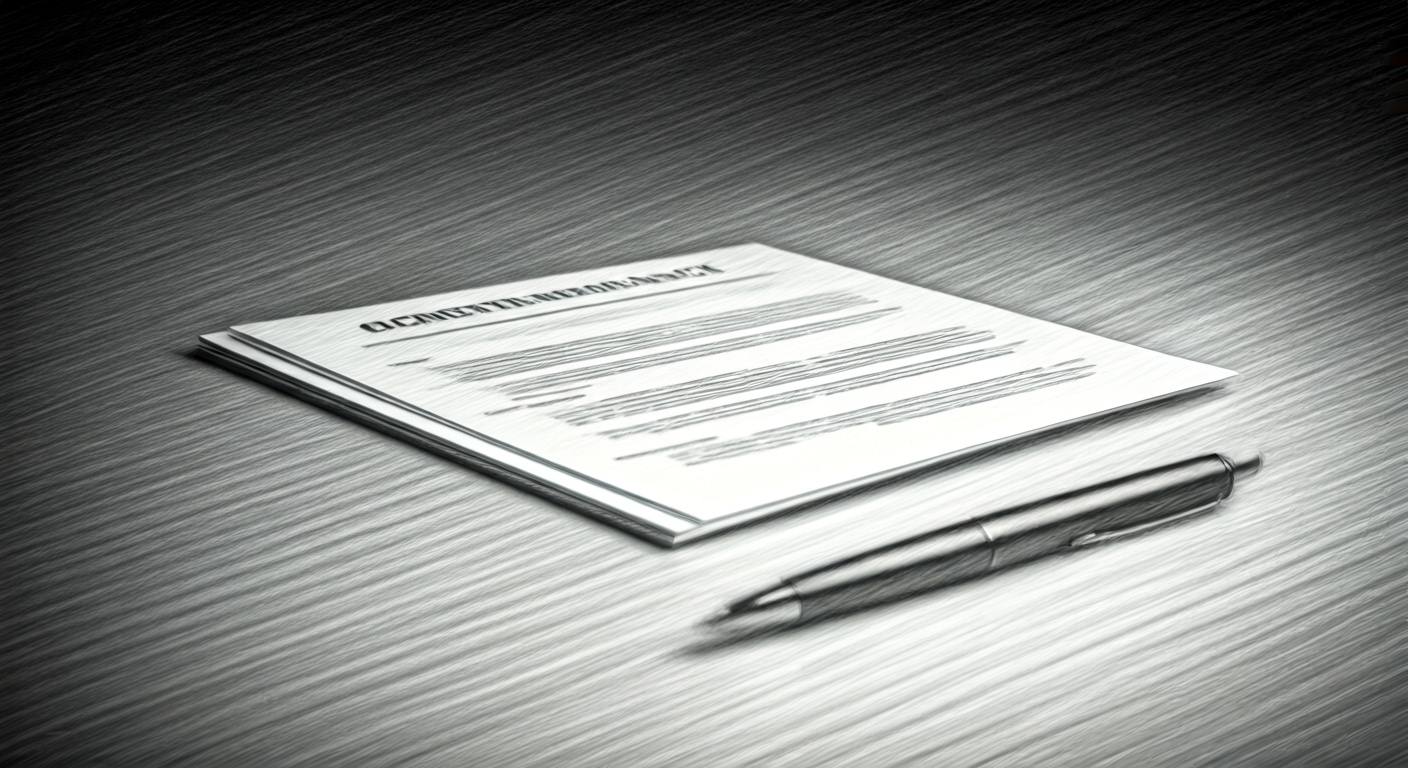
Key Highlights
- Death Insurance Basics: Protect financial security for loved ones by offering a death benefit through various life insurance policies, such as term life insurance and whole life insurance.
- Accidental Death Coverage: Learn how accidental death insurance specifically handles qualifying fatal incidents such as car accidents or drowning.
- Flexible Policy Options: Explore coverage plans provided by life insurance companies, including universal and permanent life insurance options tailored to individual needs.
- Affordable Premium Rates: Discover the cost effectiveness of term policies over extended time periods combined with variable sums of money.
- Family Protection: Ensure dependents and children receive financial support to cover expenses like funeral costs and everyday necessities.
- Customizable Benefits: Utilize additional riders like accelerated death benefits for unique financial circumstances.
Introduction
Death insurance helps ease money problems that come when someone close to you passes away. With life insurance, a person can choose a plan that works for them and make sure their family or friends get a death benefit. This is a sum of money that the insurance company pays out after the person’s death. There are many types, like term life and other options, so you can pick what is best for your needs. When you work with a trusted insurance company, you help protect the people you care about from money worries.
Now, let’s look at what makes up death insurance and why it matters.
What Is Death Insurance?

Death insurance is often part of a bigger life insurance plan. It promises to give a death benefit payout to your loved ones if you pass away. This money can help cover things like funeral costs, debt, and care for children. You can get this help from standard life insurance, term life insurance, accidental death plans, or even universal life insurance. Each plan helps with the different things you and your family may need. When you choose a trusted insurance company, it can make sure that the life insurance policy is set up for what you want in life.
These life insurance policies give families protection from money problems if the main earner dies or if there are sudden costs. The death benefit from a life insurance policy is a promise that the insurance company will give money to your loved ones if something happens to you. It does not matter if you want term life insurance or you go for a long-term plan like universal life insurance. With any of these choices, death insurance is there to give families support when they need it the most.
How Death Insurance Differs from Life Insurance
At first, it may look like death insurance and life insurance be the same thing. But there is an important difference in how and when they work. Life insurance covers both natural deaths and accidental deaths. But accidental death insurance usually means a payout if something sudden and unexpected happens, like in an accident. The small details can be found in what each policy says.
You also see different rules about when a payout is made and what can cause the payout. For example, with an accidental death insurance policy, payment is made only if the cause of death is by an accident—like a car crash. Life insurance, though, can cover more ways of dying. You may still get a death benefit for things like sickness, not only accidents. Plus, a life insurance policy may let you pick from cause of death benefit options or set some things it will not cover, like deaths from very risky sports.
The cost you pay in premiums also changes between these types of insurance. Premium rates for term life insurance are usually lower than what you might pay for a policy just about covered accidents. What you and your family need will help you decide which plan to pick. When you know what is most helpful for your loved ones, it gets easier to choose the right type of life insurance or accidental death insurance for your situation.
Who Needs Death Insurance in the United States?
Death insurance helps people who want to make sure their families have money if something happens to them. This is very important for families with kids or adults who depend on one person’s income. An insurance plan can help pay bills, help with school costs, or cover hospital costs for those you leave behind.
Sometimes, public assistance programs may help out a little after someone dies, but the help is not always enough. When you buy a life insurance policy, you remove this worry. You make sure that the people who count on you are looked after in case something goes wrong. The death benefit gives your family quick access to money during tough times.
The life insurance also matters for those who have jobs with lots of risks. No matter if the cause of death is natural or by accident, an insurance plan helps your family have enough money and feel more safe in the future. They are protected in many different ways with this kind of insurance policy.
Main Types of Death Insurance Policies

Death insurance comes in three main types: term life insurance, whole life insurance, and universal life insurance. Term life insurance covers you for a set time period. It usually has flexible premium rates. This can be good if you want coverage for a short time to reach certain money goals.
On the other hand, permanent life insurance includes both whole life and universal life insurance. These life insurance options last for your whole life and also build cash value over time. Each type has its own goal. Some can give you short-term protection, and others help you save or invest for the future. Make sure to pick a life insurance company that gives the coverage that fits your family’s needs.
Term Life Insurance Explained
Term life insurance is a type of life insurance that lasts for a set time period, like 10, 20, or 30 years. During this time, premium rates are usually low. This can be a good way for people to get the financial support their family will need if something happens to them. The death benefit payout is easy to understand. If the person who owns the policy dies during the time period, their loved ones get a set sum of money.
This kind of life insurance works well when you need to cover things that will not last forever. For example, it can be good for paying off a mortgage or helping pay for dependent children until they grow up. But when the term ends, that insurance plan will also end, unless you renew it or switch to another plan.
Many things help decide life insurance costs for term policies. Some of these are age, how much coverage you pick, and your health when you apply. Term life insurance gives people a way to make sure their family is safe without taking on years and years of premium payments. It is a simple option that helps give some peace of mind.
Whole Life and Universal Life Insurance Overview
Whole life insurance and universal life insurance give you permanent coverage. That means you get lifelong financial security. Both insurance options come with a death benefit, so your family will have money after you die. They also let you grow cash value over time, so you can use it later if you need.
| Policy Type | Key Features | Premium Cost | Coverage Duration |
|---|---|---|---|
| Whole Life | Fixed premium rates, cash value grows steadily | Higher premiums | Lifelong |
| Universal Life | Flexible premiums, cash value tied to market rates | Variable | Lifelong with cash-value accumulation |
People choose whole life insurance if they want stable premium rates that stay the same. Universal life insurance is for people who want more choice in how they pay and who like to grow their cash value based on market rates. Get whole life or universal life insurance to make sure your family gets support later and your death benefit protects them.
Key Benefits of Death Insurance
Death insurance gives peace of mind with the help of its main benefits. One of the key parts is the death benefit. This makes sure that after the policyholder is gone, their loved ones have some money security. It can help cover daily needs and take care of leftover debts.
The death benefit payments also take away some of the money worries that come from end-of-life costs. No matter if you choose a permanent or term life insurance plan, the real value comes from having trusted support for your family in tough times. A life insurance plan is there to help with the things you do not expect. With each insurance plan, you can make sure your people are looked after with a steady hand, even when things change.
Financial Security for Loved Ones
Death insurance helps make a safety net for your family by giving them financial support when they need it most. If you have dependent children, this can be very helpful. A life insurance plan can help your kids keep their way of life and pay for their education after you are gone.
The amount of money from the death benefit may be used for important things. This includes housing, groceries, and utilities. A standard life insurance plan helps make sure your family gets a steady and reliable sum of money when there is an emergency.
Because of this, getting an insurance plan is a good step. It helps your dependents get ready for financial stability and guards their future chances. The peace of mind you get when you know your family is covered if something bad happens cannot be replaced.
Use of Death Benefit: Common Expenses Covered
The death benefit payout helps your family handle important costs when you are gone. Your loved ones can use the death benefit to manage things right away. This also helps keep life steady when times are hard.
- Funeral Expenses: The payout can help pay for the burial and any events to remember you.
- Daily Living Costs: Your family can use it for things like groceries, rent, or the bills for heat and water.
- Debt Payments: The money helps to clear loans, credit card bills, or the house payment.
- Healthcare Bills: It can be used to pay the medical bills, like those that come up because of disease control.
Having a good death benefit means your family will feel less stress about money after a loss.
Conclusion
Understanding death insurance is very important if you want to keep your loved ones safe and stress-free about money worries. When you learn about different types, like term life and whole life insurance, you have the facts you need to pick what works best for you. There are many benefits to having life insurance. It does more than just give financial support. It also helps pay for important costs in tough times. You should look at your own situation and think about how life insurance can be a big part of your money plan. If you want to know more or need someone to help you, reach out to our team now. Our experts can help you find the right option.
Frequently Asked Questions
Is death insurance taxable in the U.S.?
Death insurance payments are usually tax-free when people get them. But, there are some times when this is not true. If the payments grow because of interest, or if the payout becomes part of an estate that is taxed, you might have to pay taxes. It is a good idea to talk to a tax expert about your own situation.
Can you have multiple death insurance policies?
Yes, you can have more than one life insurance policy. You can get them from different insurance companies. Having more policies will give you more coverage. But it will also make your life insurance costs go up. Make sure to look at your money situation well before you get any extra plans.
What is not covered by death insurance?
Death insurance often does not cover some causes of death. If the death is because of acts of war or terrorism, the policy usually will not pay. Death from suicide in the first waiting period is not covered either. There can also be limits put on disease control in cases where risk is high. Always check the policy forms for all the exclusions.
How are beneficiaries chosen for death insurance?
Choosing who gets your life insurance money means you fill out rider forms that go with your life insurance policy. You can list your dependents, loved ones, or groups like organizations. The insurance company will give the money after you pass away just like you asked in the forms.
How do you claim a death insurance benefit?
Beneficiaries can get the death benefit by reaching out to the insurance company. They must give the needed papers, like the death certificate. There is usually a waiting period before the payout is done.
